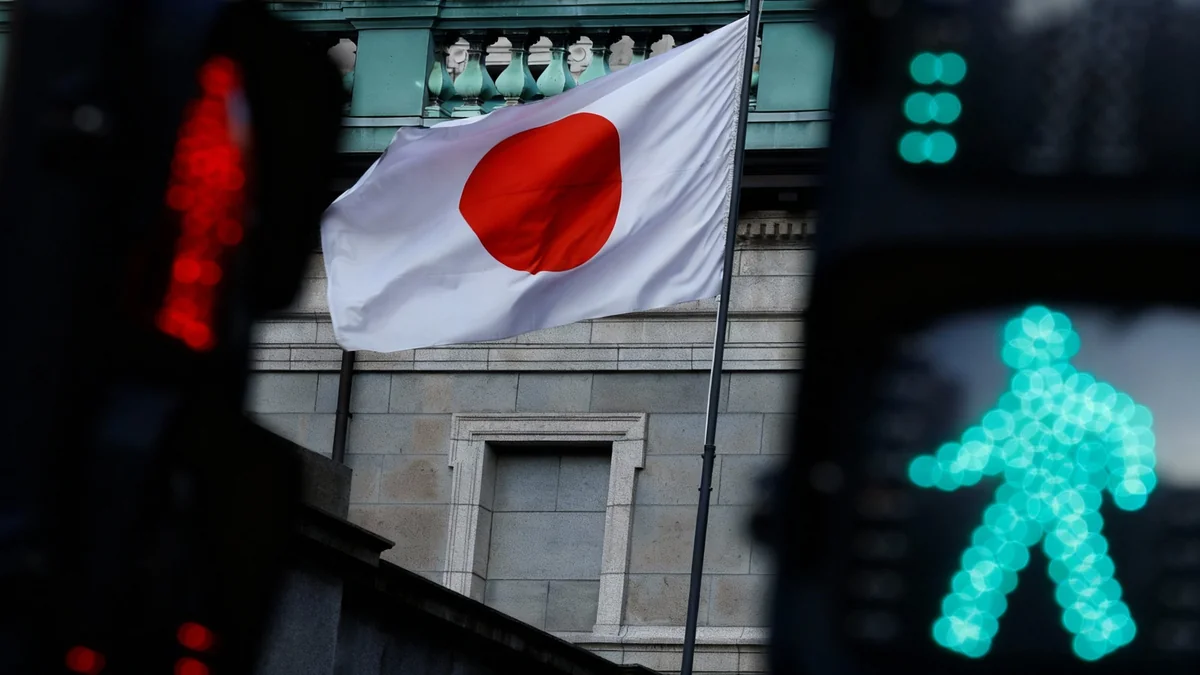Japan's Financial Services Agency (FSA) is actively considering regulatory changes that would permit domestic banks to acquire and hold crypto assets like Bitcoin for investment purposes. This potential policy shift marks a significant move toward integrating digital assets into the country's traditional financial system.
In a parallel development, Japan's three largest banking groups are collaborating on a plan to jointly issue a yen-pegged stablecoin. These dual initiatives from regulators and major financial institutions signal a coordinated effort to modernize Japan's economic infrastructure and embrace blockchain technology.
Key Takeaways
- Japan's FSA is reviewing rules to let banks hold investment crypto assets such as Bitcoin.
- This would reverse a 2020 guideline that restricted banks from such investments due to volatility.
- The country's three megabanks are developing a joint yen-pegged stablecoin for corporate settlements.
- The initiatives aim to enhance financial efficiency while establishing strong regulatory safeguards.
Regulatory Shift Toward Digital Asset Integration
Japan's top financial regulator is re-evaluating its historically conservative stance on cryptocurrency within the banking sector. The Financial Services Agency has initiated discussions that could lead to a landmark change, allowing banking institutions to add assets like Bitcoin to their balance sheets as investments.
This move would formally recognize cryptocurrencies as a distinct asset class for institutional portfolios. By permitting banks to allocate capital to digital assets, regulators hope to enable portfolio diversification and potentially open new avenues for profitability within a controlled framework.
A Change from Previous Policy
The current deliberations represent a departure from supervisory guidelines revised in 2020. Those rules effectively prevented bank groups from acquiring crypto assets for investment, citing concerns over their extreme price volatility. The new discussions suggest a growing confidence in the maturity of the digital asset market.
The timing of this review aligns with significant growth in crypto adoption within Japan. According to recent data, the number of cryptocurrency accounts opened in the country exceeded 12 million by the end of February 2024. This figure represents a 350% increase over the past five years, indicating a strong and growing retail interest in the asset class.
Establishing Robust Safeguards for Banks
While the FSA is exploring greater institutional access to crypto, it remains focused on ensuring financial stability. A primary concern is mitigating the risks associated with the volatility of digital assets. The agency's Financial System Council will be central to developing these protective measures.
Key discussions will revolve around the implementation of strict capital requirements for banks that choose to hold cryptocurrencies. These rules would ensure that institutions maintain sufficient capital reserves to absorb potential losses from their digital asset holdings without jeopardizing their overall financial health.
Focus on Exposure Limits
A critical component of the proposed regulatory framework is the imposition of exposure limits. These limits would restrict the total volume of crypto assets a bank can hold, likely calculated as a percentage of its core capital base. This is a standard risk management tool used to prevent over-concentration in any single asset class.
This measured approach—allowing market entry while simultaneously building strong risk management protocols—is consistent with global regulatory trends. Authorities worldwide are seeking to foster financial innovation in a controlled environment that protects both consumers and the broader financial system.
Megabanks Launch Collaborative Stablecoin Project
Adding momentum to Japan's digital transformation is a major initiative from the country's leading financial institutions. Three megabanks—Mitsubishi UFJ Financial Group (MUFG), Sumitomo Mitsui Financial Group (SMFG), and Mizuho Financial Group—are working together to issue stablecoins for corporate use.
The initial focus is on a yen-pegged stablecoin, designed to maintain a one-to-one value with the Japanese yen. The banks also have plans to expand their offering to include a U.S. dollar-pegged stablecoin in the future. This project is made possible by Japan's updated Payment Services Act of 2023, which established a clear legal framework for the issuance and circulation of stablecoins.
Unified Standard for Corporate Payments
The banking consortium plans to use a shared system developed by the fintech firm Progmat Inc. A key innovation of this platform is the establishment of a unified technical standard for the stablecoins. This ensures full interoperability, allowing for seamless fund transfers and settlements among the corporate clients of all three participating banks.
The project has a clear real-world application in its sights. According to reports, the banks are targeting initial adoption for corporate settlements by Mitsubishi Corp., one of Japan's largest trading houses. The goal is to begin practical application within the current fiscal year.
The primary objectives of the stablecoin initiative are to leverage blockchain technology for more efficient corporate finance. The banks aim to achieve:
- Faster Payments: Near-instant settlement times compared to traditional banking systems.
- Lower Costs: Reduced transaction fees, particularly for cross-border remittances.
- Increased Efficiency: Streamlining of payment processes and reduction of administrative burdens for Japanese corporations.
Expanding the Role of Traditional Finance in Crypto
The FSA's support for digital asset infrastructure extends beyond just allowing banks to hold crypto. The agency is also reportedly considering a framework that would allow bank groups to register as Crypto Asset Exchange Service Providers.
This would be a significant step, potentially allowing highly regulated and compliant traditional finance institutions to operate their own cryptocurrency exchanges. Such a move would further blur the lines between traditional banking and the digital asset ecosystem, potentially bringing a new level of trust and security to the retail and institutional crypto markets in Japan.
Together, these regulatory and private-sector initiatives represent a comprehensive strategy to integrate digital assets into the core of Japan's economy. By allowing banks to both invest in assets like Bitcoin and issue their own blockchain-based payment tools, Japan is positioning itself as a key player in the future of global finance.





